Building the new government that must put Germany on track for 2045 climate neutrality
Germany is headed for a three-party coalition after elections
Contents
COP26 results increase pressure on prospective German government to deliver on climate
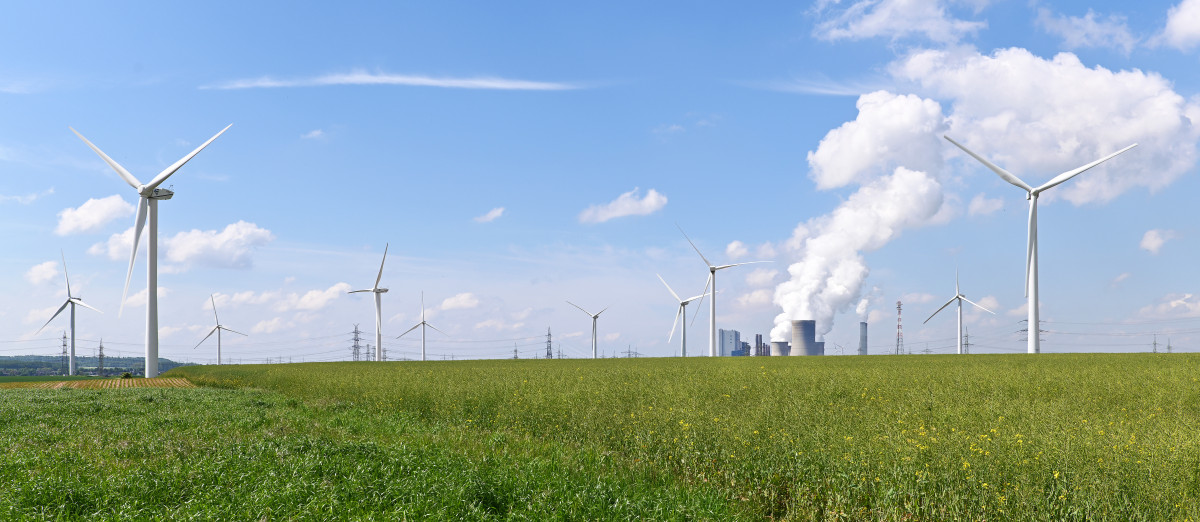
The results of the UN climate conference in Glasgow (COP26) add pressure to Germany's ongoing negotiations to form a new government coalition that needs to agree on ambitious steps to cut emissions. As the coalition negotiations entered a higher level involving party leaders, representatives from the three parties involved said that the country now must translate ambitions into concrete actions. An NGO alliance and the Green Party said the Glasgow conference had delivered a clear mandate to the prospective government to step up its climate targets and significantly pull forward its coal coal exit date. Read the article here.
Funding, burden sharing of climate action loom over quiet coalition talks in Germany
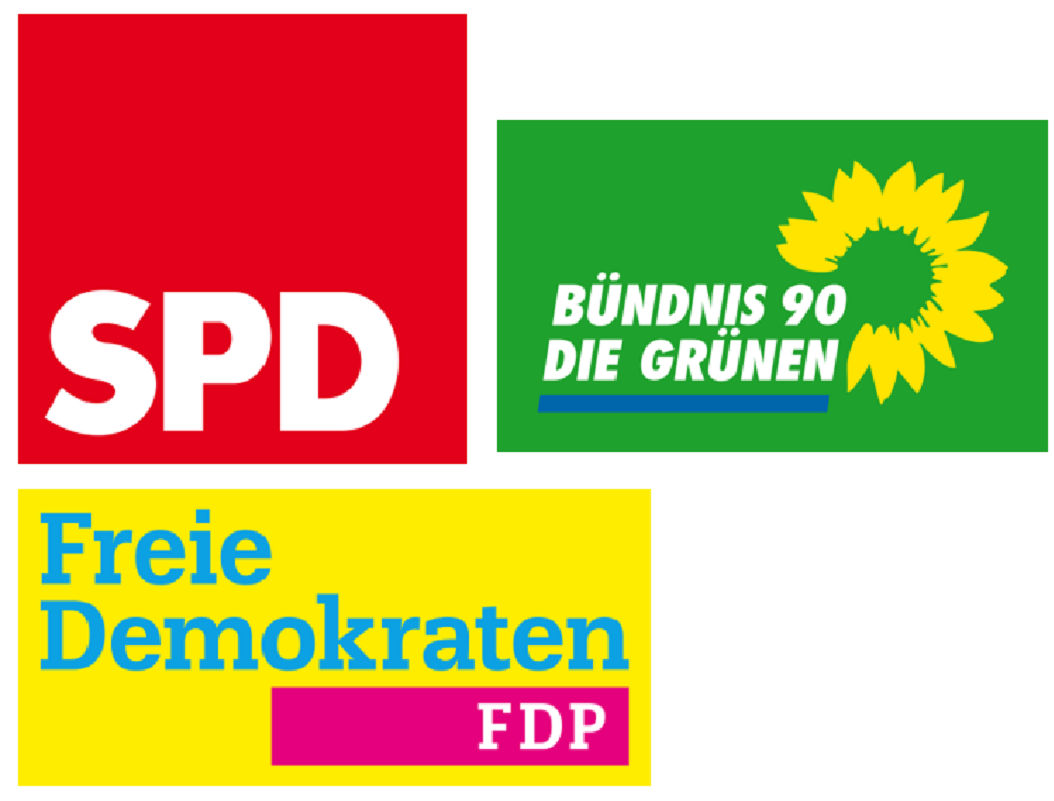
Finding sources of funding for climate action and ensuring a fair distribution of benefits and costs among different groups in society look set to become the main challenges for negotiators of a new German government coalition. While information from the talks between the SPD, the Greens and the FDP remains scarce, the parties' comments show that agreeing on measures to finance their goal of ambitious emissions reduction will be a tough battle over definitions and targets of expenses. The negotiations moreover look set to include attempts to shield their voter base from emissions reduction plans without appearing to slow climate action. Read the article here.
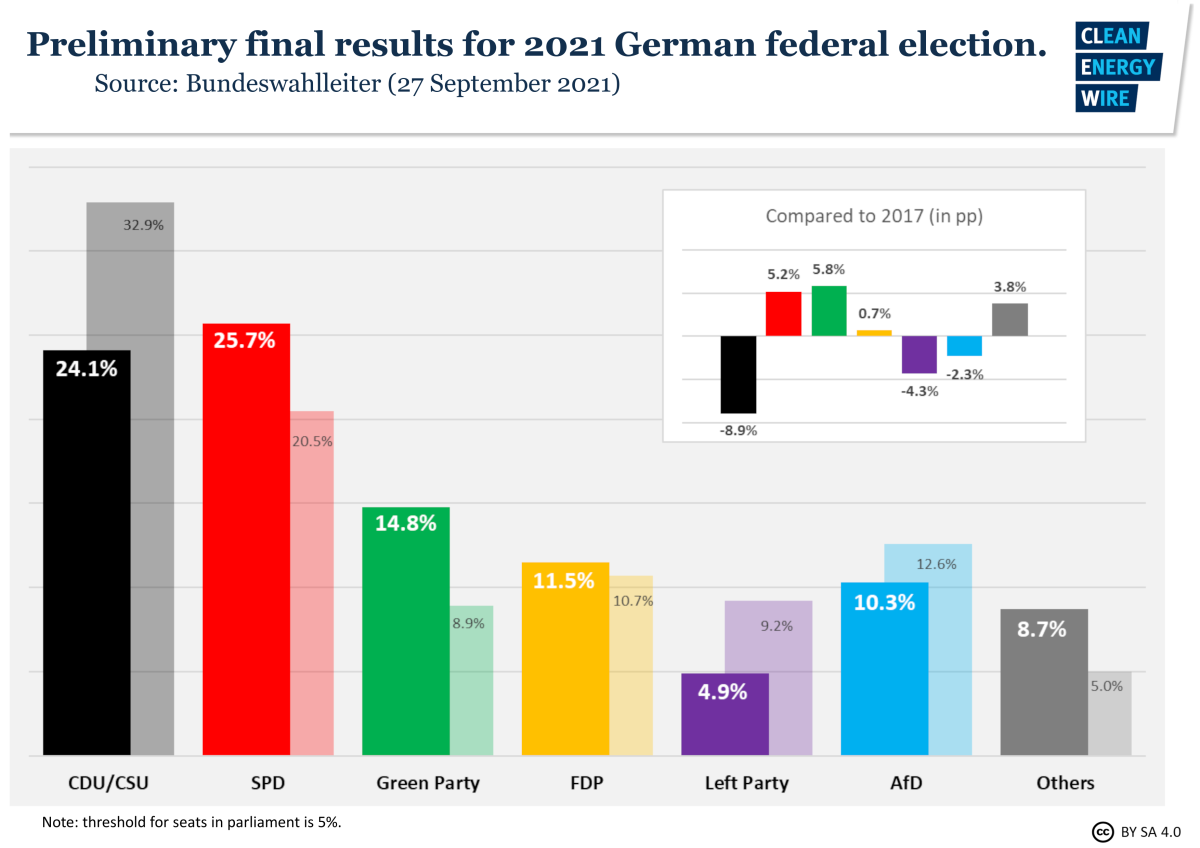
SPD, Greens, FDP to enter negotiations for new government focussed on 1.5°C path
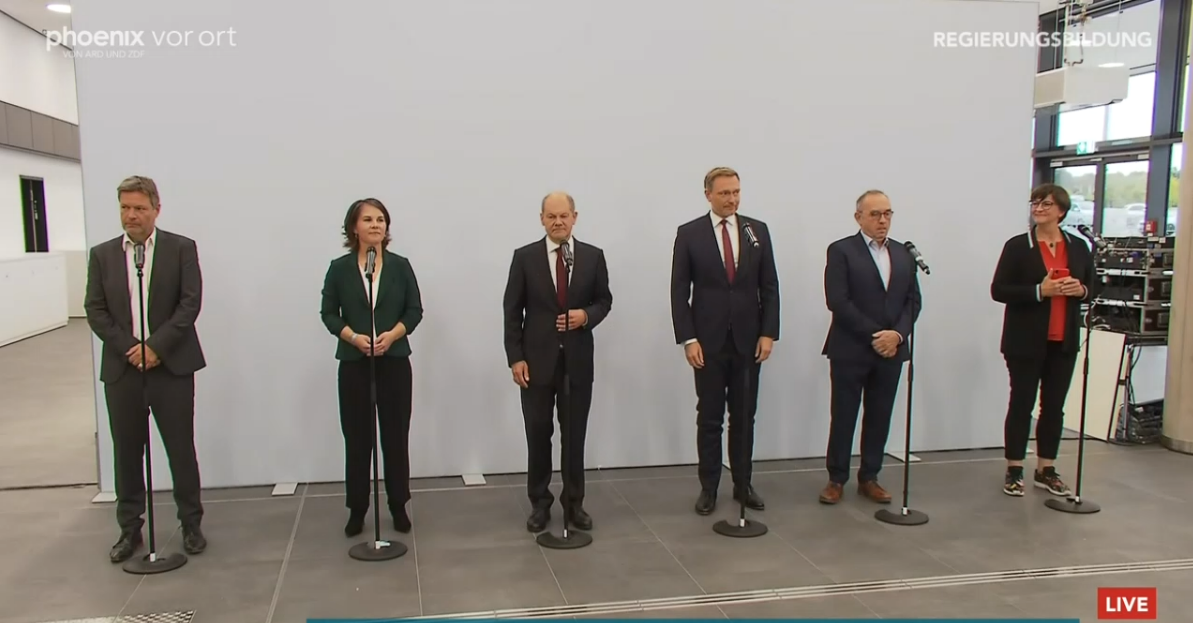
Three weeks after Germany’s election, the country is moving one step closer towards its first three-party government coalition. Following several days of intensive preliminary talks, the Social Democrats, the Green Party and the Free Democrats said they would seek to enter into formal coalition negotiations soon and strive to form a new government before the end of the year. All three parties stressed the amicable tone in the talks that could help the country to have a “fresh start” and pave the way for an ecologic modernisation of the economy that complies with climate targets. Most people in Germany strongly back the formation of a so-called “traffic light coalition,” but the start of formal negotiations still hinges on the consent of all relevant party bodies. Read the article here.
What are the climate and energy plans of German election winner Scholz?
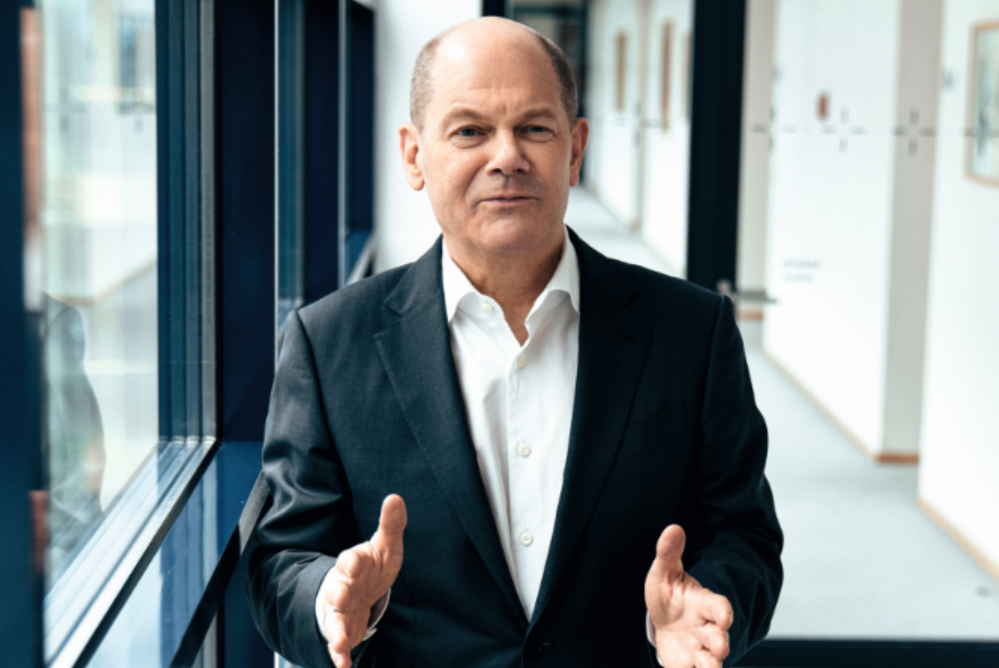
Olaf Scholz has led Germany's Social Democrats (SPD) to an unexpected win in the country's 2021 elections. The finance minister of chancellor Angela Merkel's outgoing government has led a campaign based on continuity with the Merkel years coupled with more social justice and a reanimation of renewables expansion as the prerequisite for all other decarbonisation plans. But Scholz will have to walk a thin line between meeting the requirements for putting Germany on track towards climate neutrality and not alienating voters who supported the SPD due to its promise not to overburden citizens with climate action costs. The possible next chancellor of a government coalition that includes the Green Party and the pro-business FDP has said he wants to become a "climate chancellor" - like his predecessor Merkel - but judging by his past policy choices he still has work to do to live up to his stated ambition.What are the climate and energy plans of German election winner Scholz? Read the article here.
The September 2021 election result has left Germany with several options for a new government coalition. Agreeing it will involve lengthy negotiations to overcome major discrepancies between party programmes, and agreeing on a compromise that puts climate action centre stage, as all major parties have vowed they would. It could take until the end of the year, with both the Social Democrats’ and the conservatives' candidates saying they are hopeful that the government will stand by Christmas. The political options are manifold: The Social Democrats (SPD), who won the most seats in parliament, would like to govern with the Green Party and the pro-business Free Democrats (FDP). Another option is an alliance between Greens, FDP and the conservatives (CDU-CSU), who are the second largest group in parliament despite suffering heavy losses in the election. As the kingmakers of any such three-way coalition, FDP and Green Party said they would talk to each other first. This tracking piece follows the coalition talks – from the first day after the election until the new government is established.
Climate policy rift promises thorny talks between German election ‘kingmakers’ Greens and FDP
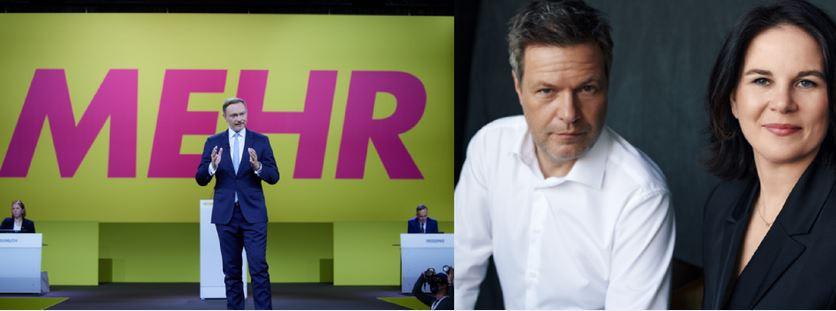
Following a tight election that saw the Social Democrats narrowly beat the conservatives, the smaller Greens and pro-business Free Democrats (FDP) look set to become decisive for building a new government that must set Germany on course for climate neutrality. While both parties follow a pro-climate course, deep divisions over the right approach to reducing emissions will make an agreement between Greens and FDP a challenge. An earlier coal phase-out, setting an end to the sale of combustion engine cars, and a speed limit on the country's autobahns are among the most controversial issues. Read the article here.
Germany heading for three-party government with climate focus after tight elections
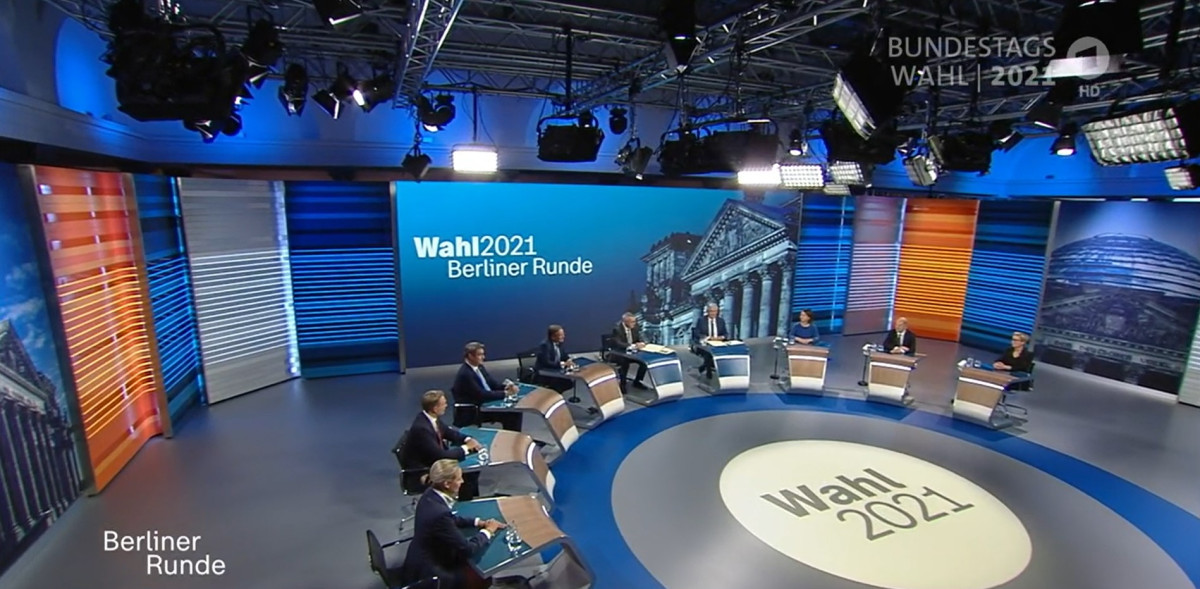
Germany is heading towards a three-party federal government with a significant climate action focus as the Social Democrats appeared to score a thin victory in the federal elections following an unexpected comeback, and the long-ruling conservatives slumped to their worst result ever. The country may not know the successor to chancellor Angela Merkel for weeks if not months as the leaders of both parties vowed to talk to the Green party, which recorded its best result ever, and pro-business Free Democrats to form the country's first three-party government. In first reactions all leading candidates stressed that climate action has to be at the core of any new coalition. Read the article here.
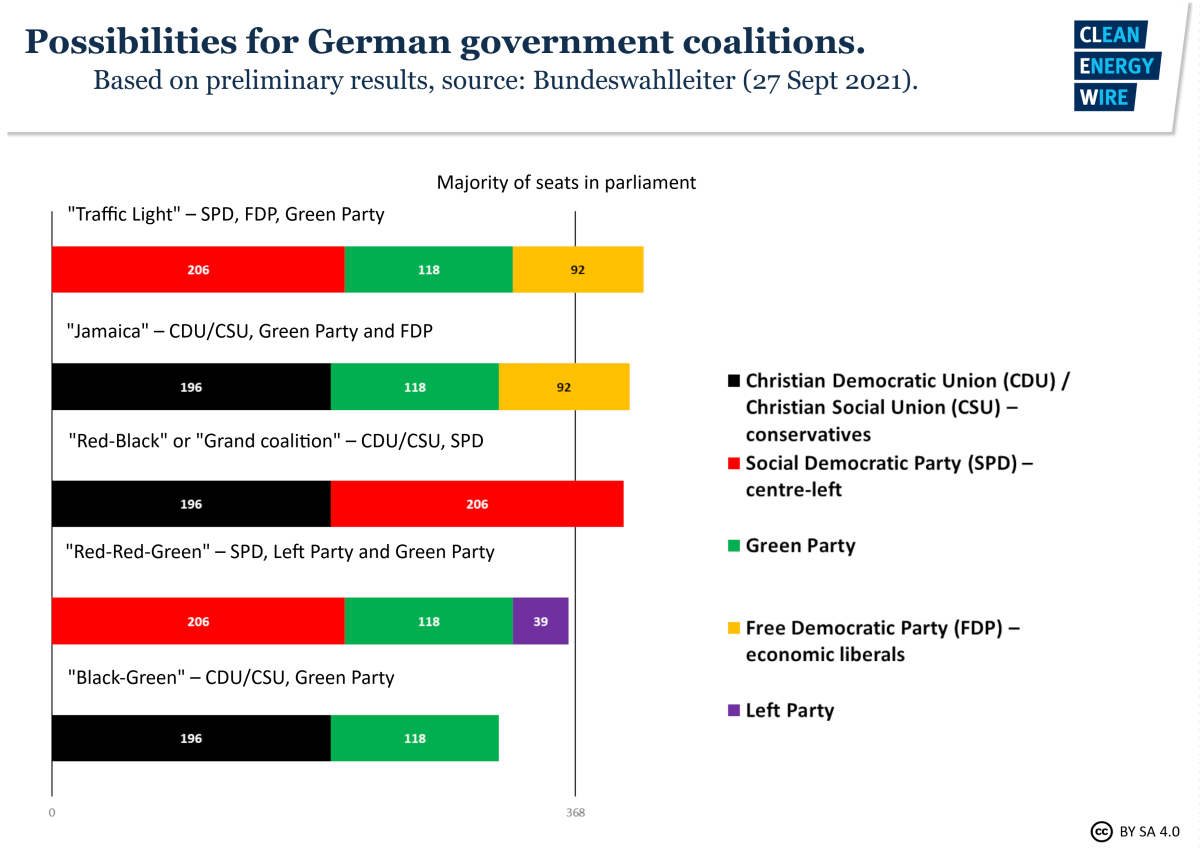
"Climate crisis as a top priority" - Reactions to German federal elections
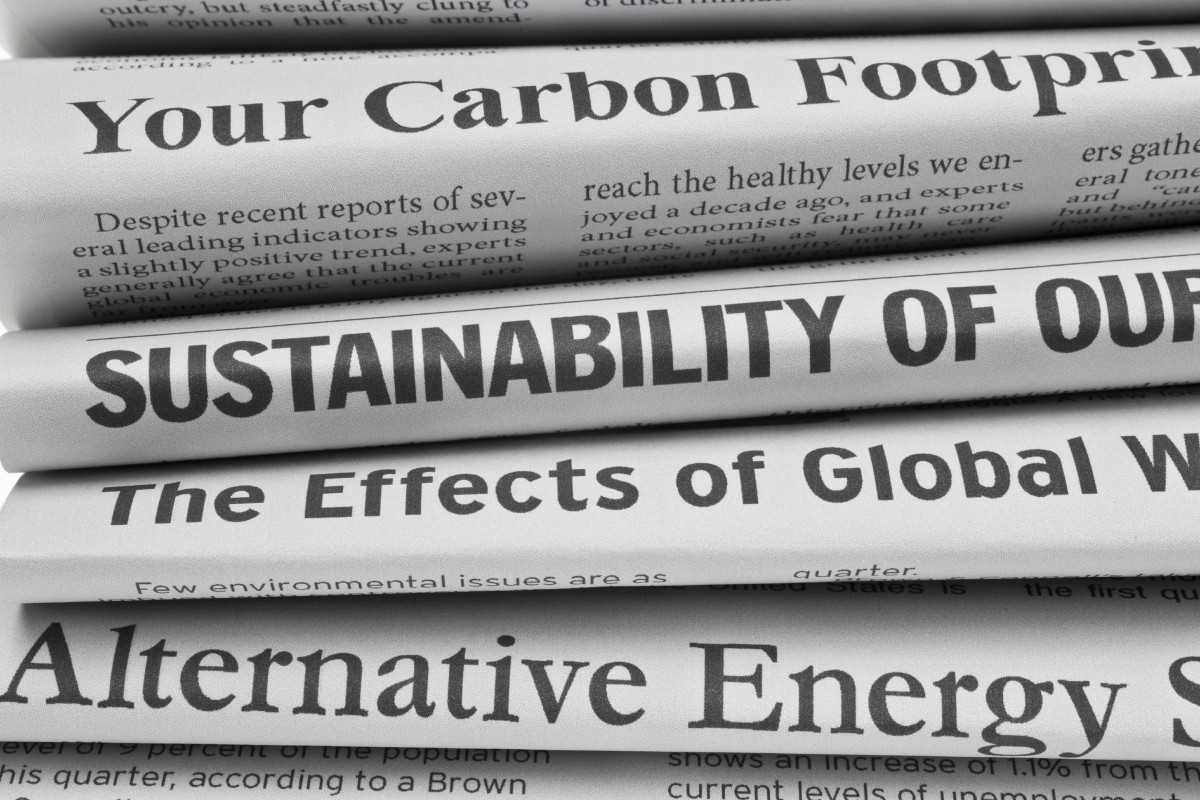
The Social Democrats (SPD) under chancellor candidate Olaf Scholz have narrowly won Germany's federal elections. According to preliminary final results, the SPD received 25.7 percent of votes, while the conservatives (CDU/CSU) under chancellor candidate Armin Laschet scored 24.1 percent, their worst result ever. The Green Party came third with 14.8 percent of the vote, followed by the Free Democrats (11.5%) and the right-wing AfD (10.3%). The results mean the country is now heading towards a novelty three-way coalition government. This is a collection of reactions from German politicians, industry, analysts, and NGOs.
The long road to a new government coalition in Germany
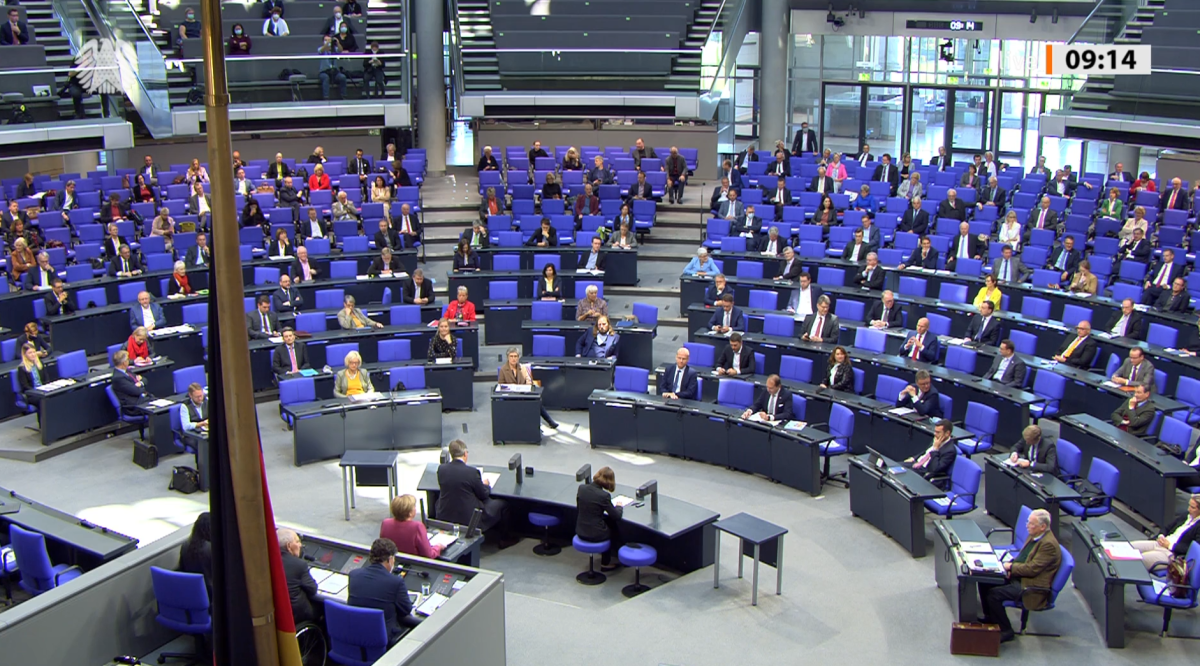
Officially, the new German government is formed after the new federal parliament decides on a chancellor, but the laborious process to get there can last for months after an election. German voters expect a period of coalition talks and negotiations to follow an election. This year, these could take longer than previously, with more parties involved in the talks after a close race. Clean Energy Wire explains the negotiation process and provides a brief overview of the path to the next German government.
